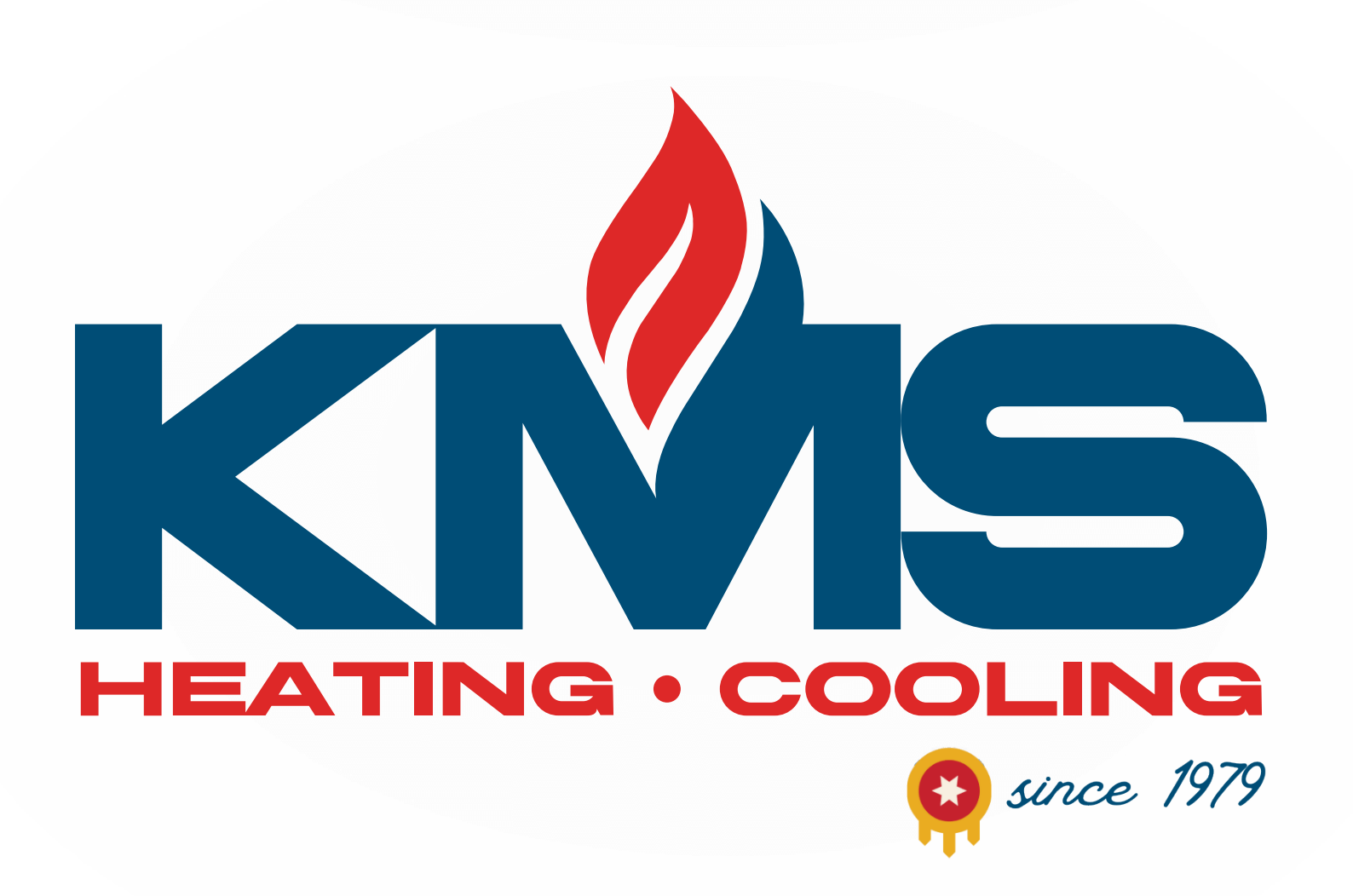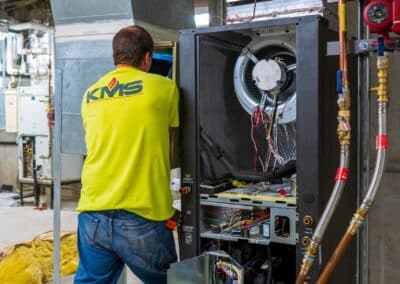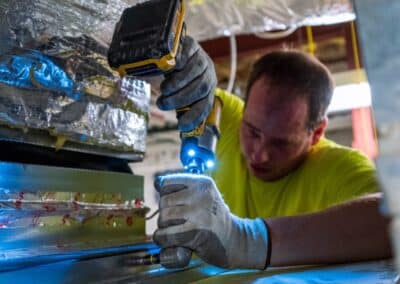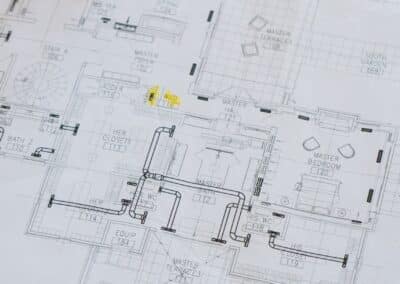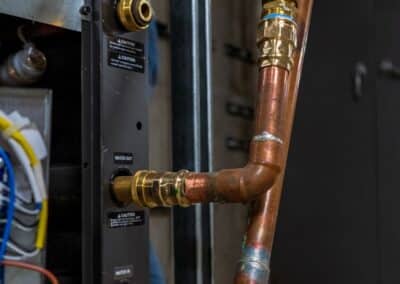Geothermal Systems
Geothermal Systems
We are the Geothermal Experts! As the most experienced Geothermal Design-Build Mechanical Contracting firm in the United States, KMS is honored to have played an integral role in the development of geothermal technology, applications, marketing, sales, education and training for the HVAC industry. Through the years, KMS leadership has shared their knowledge with universities, technical schools, equipment manufacturers, utility companies, government agencies, architects, engineers and the general public.
Keep your building warm in the winter and cool in the summer using the free energy available just 6 feet below the earth’s surface!
What is a Geothermal System?
Approximately six feet below the earth’s surface, the ground remains at a constant temperature year round, and within that earth is energy – free heat – that can be transferred to your home or building thanks to the innovative technology of a Geothermal System.
Here’s how it works:
- A geothermal system begins with a series of buried pipes using either a vertical or horizontal loop installation outside the building.
- As the pipes are filled with water, they gather heat from the earth. In conjunction with a compressor and a heat exchanger, the water gets moved to the interior of the building for warmth in the winter months.
- During the hot summer months, the system moves heat out from the building’s interior to produce cool air.
- Inside the building or home, a geothermal unit distributes the air for a nice, even comfort all year long.
In the summer, a geothermal system removes the heat from your home or building and stores it in the earth. In the winter, it removes the heat from the earth and transfers it into your home or building. As a result, the process creates a more comfortable indoor environment all throughout the year.
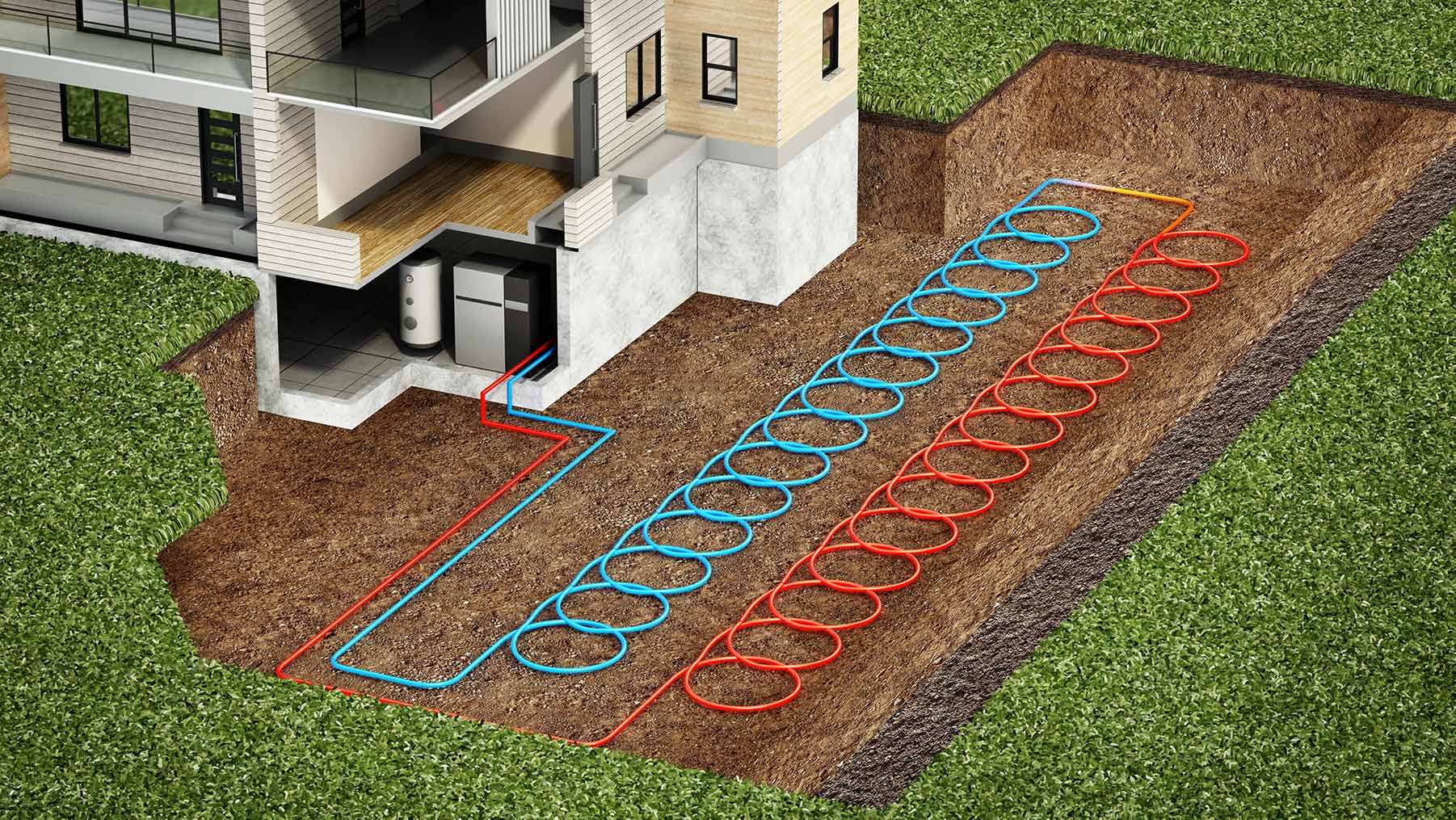
How Can We Use Geothermal?
Heating
Heating: The system will provide comfortable warm air from your ductwork to heat your home or building and is far more comfortable than conventional heating systems that tend to dry out the air in the wintertime..
Cooling
Cooling: The system will provide refreshing cool air to air condition your home or building. The geothermal system provides greater comfort than a conventional system because it removes more humidity from the air. This creates a cool, drier environment, making the entire home or building more comfortable.
Hot Water
Domestic Hot Water: The system provides free hot water in the summer and a portion in the winter! These savings turn out tobe greater than 50% of your hot water bill.
Radiant Floor Heating
Radiant Floor Heating: The system generates hot water that circulates through tubing beneath your floor creating all around comfort in that first step out of the shower! Radiant Floor Heating is by far the most enjoyable floor heating available.
Swimming Pool
Swimming Pool Heating: This option will utilize the heat removed from your home in the cooling season and provide heat for your pool once it warms up outside, eliminating the need for an expensive gas heater.
Chilled Water
Chilled Water: The system can make chilled water for use in the air conditioning or manufacturing processes.
Snow Melting
Snow Melting: This system option provides the ability to melt snow on your walkways, patios and driveways – no more shoveling!
FAQS about Geothermal systems
Understanding the intricacies of geothermal systems is crucial for informed decision-making. Here are five frequently asked questions about geothermal systems:
How does a geothermal system work?
Geothermal systems utilize a network of underground pipes, called a loop system, to transfer heat between the Earth and a building. During the heating season, the system extracts heat from the ground and transfers it indoors. In the cooling season, the process is reversed, and heat from the building is transferred into the cooler ground.
What are the benefits of installing a geothermal system?
Geothermal systems offer numerous benefits, including significantly lower energy bills, reduced carbon emissions, increased comfort with consistent temperatures year-round, longevity (with proper maintenance, systems can last for decades), and the potential for government incentives and rebates.
What maintenance is required for a geothermal system?
Geothermal systems require minimal maintenance compared to traditional HVAC systems. Routine tasks include checking and cleaning air filters, inspecting the loop system for leaks, and ensuring proper fluid levels in the loop. Periodic professional inspections are also recommended to ensure optimal performance.
Is a geothermal system suitable for my property?
Geothermal systems are suitable for various property types, including residential homes, commercial buildings, and industrial facilities. Factors such as available land space for loop installation, soil conditions, and local climate will influence the system’s feasibility and efficiency.
